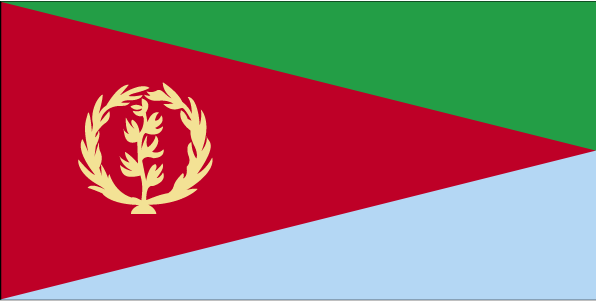
Ocean Cargo from / to Eritrea
The following listing of companies that can undertake your ocean shipping of goods to / from Eritrea offers a sampling of some of the most dedicated firms in their industry. Notonly should you expect fair quotes, but you should see levels of expertise that you would expect from such selected professionals in Eritrea.
Most ocean cargo shipping companies to / from Eritrea will have a certain specializationthat could pertain to specific types of cargo and how they are shipped. Should your cargo have uniquecharacteristics, make sure that you select an ocean cargo shipping firm in Eritreathat has the capabilities and experience to undertake such a shipment to / from Eritrea.
Quick country information for your Ocean Cargo to Eritrea
Eritrea Capital City: Asmara
Eritrea Population: 296,736,550 (February 2026 est.)
Eritrea Languages: English, native languages
Eritrea Climate: Based on variations in temperature, Eritrea can be broadly divided into three major climate zones: the temperate zone, subtropical climate zone, and tropical climate zone. The climate of Eritrea is shaped by its diverse topographical features and its location within the tropics. The diversity in landscape and topography in the highlands and lowlands of Eritrea result in the diversity of climate across the country. The highlands have temperate climate throughout the year. The climate of most lowland zones is arid and semiarid. The distribution of rainfall and vegetation types varies markedly throughout the country. Eritrean climate varies on the basis of seasonal and altitudinal differences.
Eritrea Location: Eastern Africa bordered by Ethiopia, Sidan and Djibouti.
Eritrea Background: After independence from Italian colonial control in 1941 and 10 years of British administrative control, the UN established Eritrea as an autonomous region within the Ethiopian federation in 1952. Ethiopia's full annexation of Eritrea as a province 10 years later sparked a violent 30-year struggle for independence that ended in 1991 with Eritrean rebels defeating government forces. Eritreans overwhelmingly approved independence in a 1993 referendum. ISAIAS Afwerki has been Eritrea's only president since independence; his rule, particularly since 2001, has been highly autocratic and repressive. His government has created a highly militarized society by pursuing an unpopular program of mandatory conscription into national service – divided between military and civilian service – of indefinite length. A two-and-a-half-year border war with Ethiopia that erupted in 1998 ended under UN auspices in December 2000. A subsequent 2007 Eritrea-Ethiopia Boundary Commission (EEBC) demarcation was rejected by Ethiopia. More than a decade of a tense “no peace, no war” stalemate ended in 2018 after the newly elected Ethiopian prime minister accepted the EEBC’s 2007 ruling, and the two countries signed declarations of peace and friendship. Following the July 2018 peace agreement with Ethiopia, Eritrean leaders engaged in intensive diplomacy around the Horn of Africa, bolstering regional peace, security, and cooperation, as well as brokering rapprochements between governments and opposition groups. In November 2018, the UN Security Council lifted an arms embargo that had been imposed on Eritrea since 2009, after the UN Somalia-Eritrea Monitoring Group reported they had not found evidence of Eritrean support in recent years for Al-Shabaab. The country’s rapprochement with Ethiopia has led to a steady resumption of economic ties, with increased air transport, trade, tourism, and port activities, but the economy remains agriculture-dependent, and Eritrea is still one of Africa’s poorest nations. Despite the country's improved relations with its neighbors, ISAIAS has not let up on repression and conscription and militarization continue.
Eritrea Ocean Cargo Weather

Know the local weather: Monday, Tuesday, Wednesday, Thursday, Friday, Saturday
Eritrea has Ocean Cargo to: Assab, Massawa
